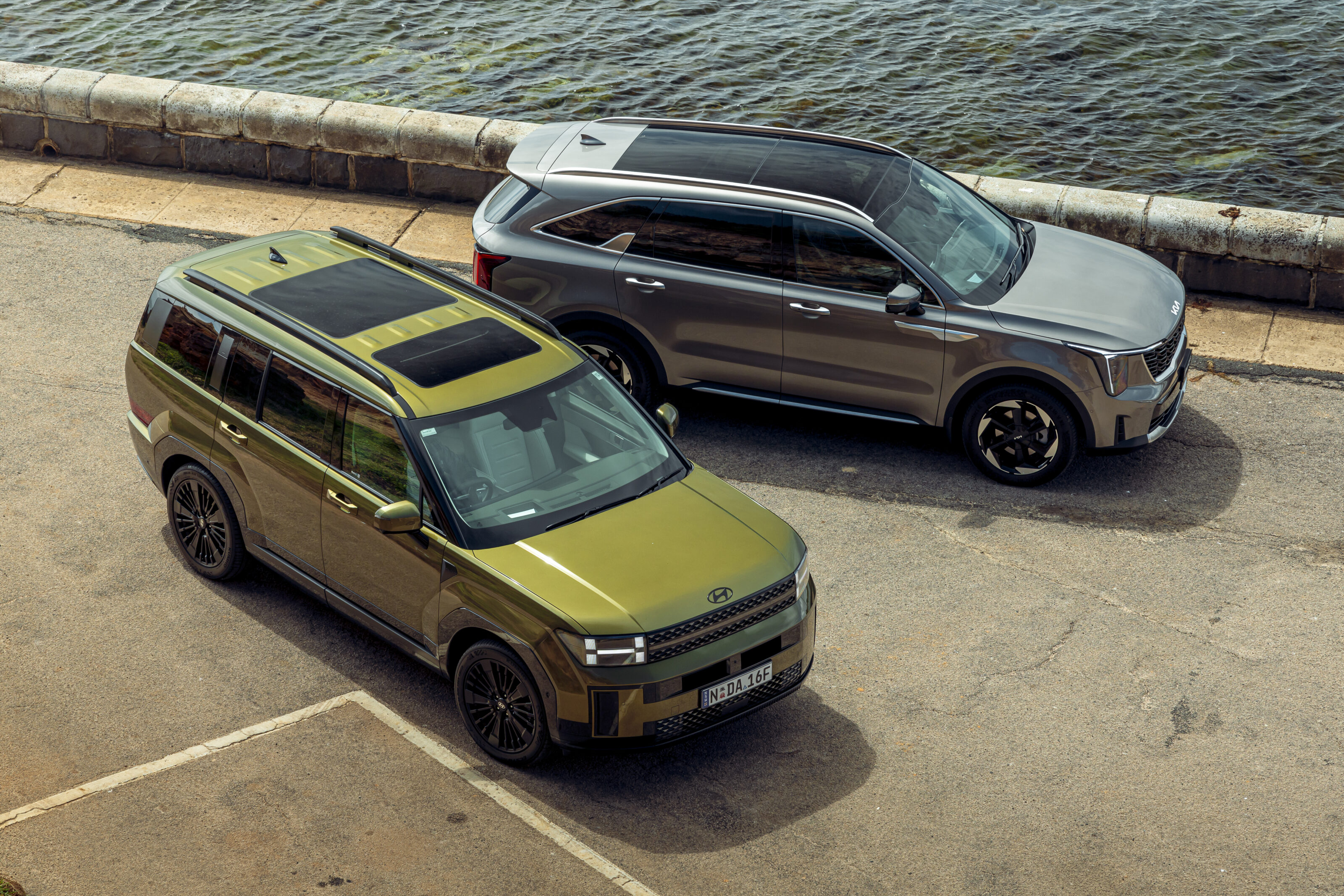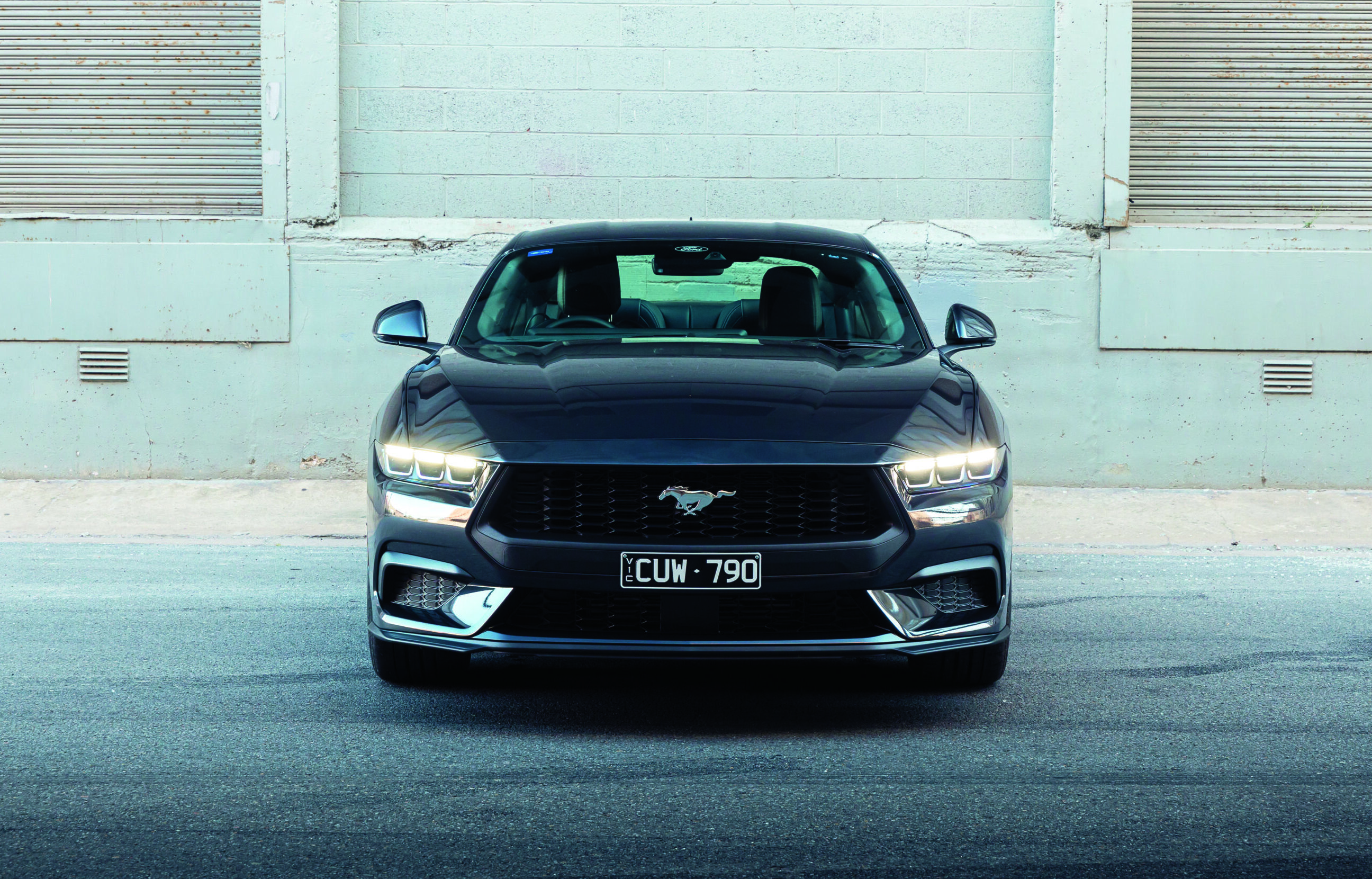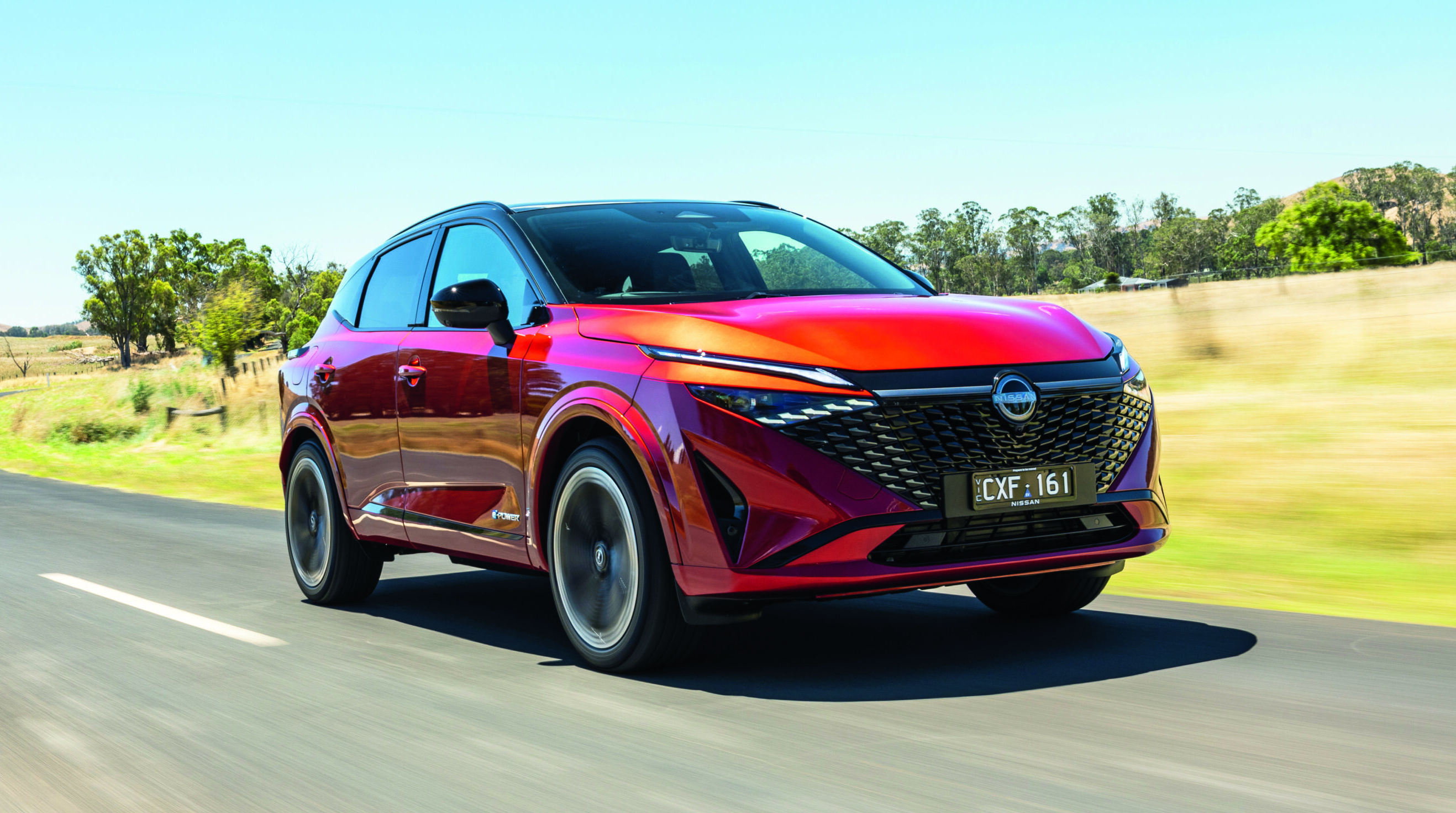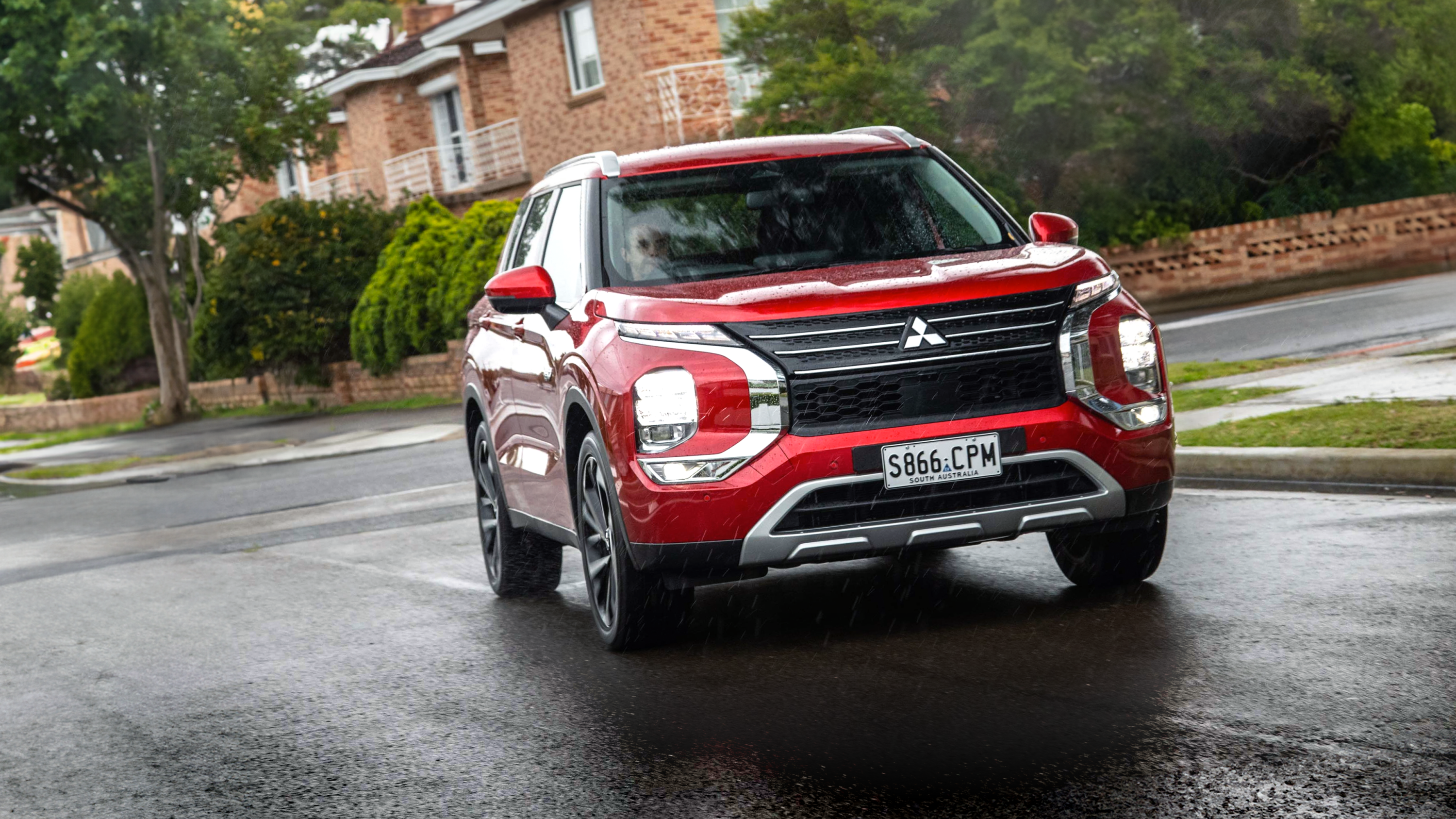
Score breakdown
Things we like
- Smooth PHEV system
- Excellent interior feel and space
- 10-year warranty (with conditions)
Not so much
- Big pricing step from petrol models
- No spare wheel
- Some chintzy detailing
The new Mitsubishi Outlander has proved itself a turning point for the always-popular mid-size SUV.
Where the previous model soldiered on for a decade with regular updates, it did so because it was cheap and there is a part of the market that was happy with a basic machine.
You would hardly have called the plug-in hybrid version basic, with its innovative powertrain, although the dowdy interior did its best to convey that impression. It was by far the best of the line-up, the gap widening when the diesel went away. And before COVID, you could grab a tidy used one for less than the cost of a new Corolla, promising a useful electric range even if it missed a couple of seats.
How things change. The new Outlander PHEV took a while to arrive, but it’s here at last – and now in a lightly updated 2024 form.
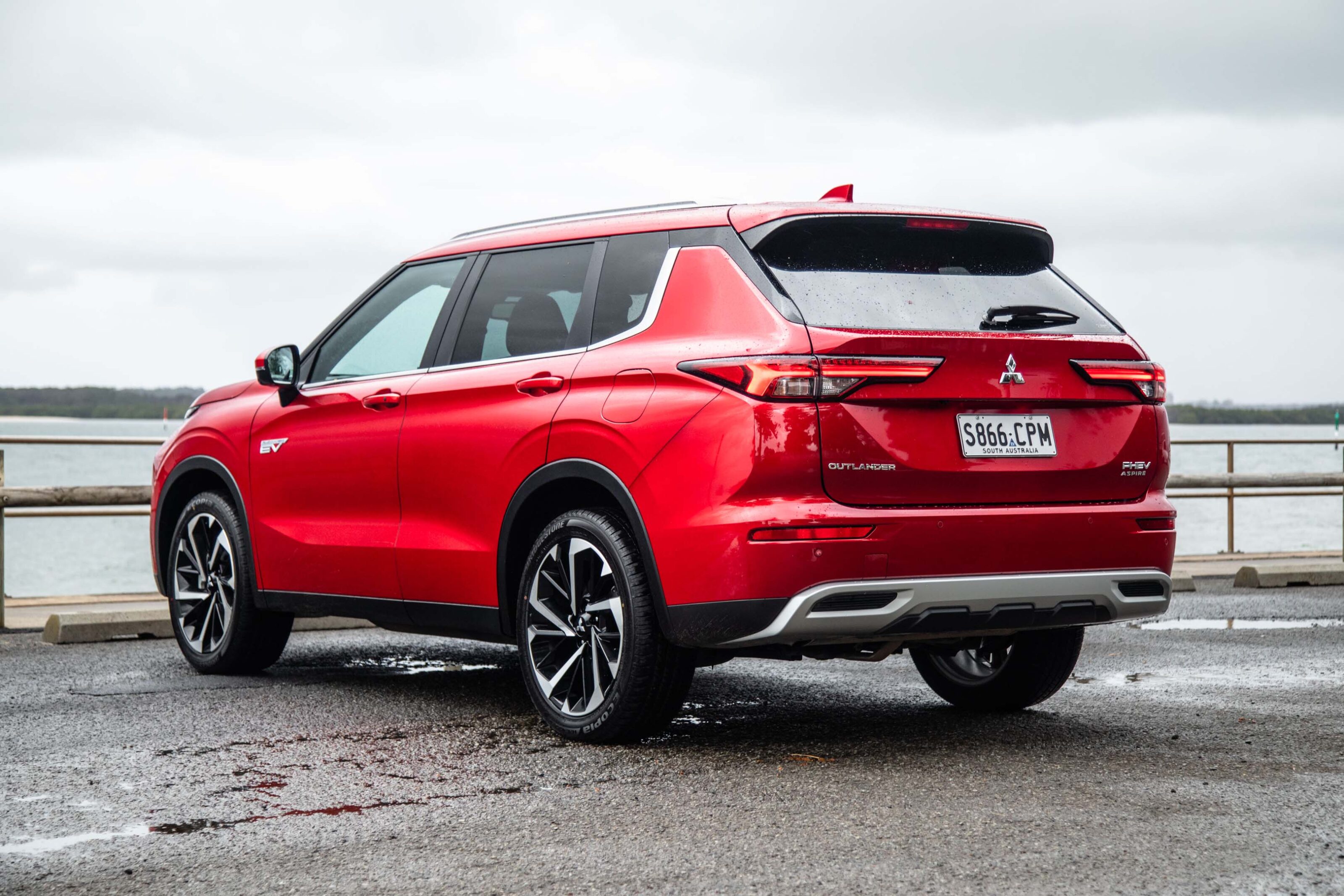
NOTE: This review incorporates the Outlander’s mild 2024 price and spec changes into a review carried out in July 2023.
JUMP AHEAD
- How much is it, and what do you get?
- How do rivals compare on value?
- Interior comfort, space and storage
- What is it like to drive?
- How is it on fuel?
- Battery and charging
- How safe is it?
- Warranty and running costs
- VERDICT
- Specifications
How much is it, and what do you get?
The 2024 Outlander PHEV range starts with the entry-level ES PHEV at a reasonable $57,290 before on-road costs.
Breaking the sixty-thousand-dollar barrier is the mid-spec Aspire tested here with a $63,790 sticker (before on-road costs), but that’s still considerably below the Exceed and Exceed Tourer seven-seater versions with all the gear.
| 2024 Mitsubishi Outlander Aspire PHEV key features | |
|---|---|
| 20-inch alloy wheels | Auto wipers |
| Keyless entry and start | Adaptive LED headlights with auto high beam |
| Suede/imitation leather trim | 6-speaker stereo |
| Leather gear selector | Apple CarPlay (wireless) |
| Leather steering wheel | Android Auto (wired) |
| Electric front seat adjustment | 12.3-inch digital dashbaord |
| Heated front seats | 9.0-inch central touchscreen |
| Power windows and mirrors | 10.8-inch head-up display |
| Satellite navigation | |
How do rivals compare on value?
Plug-in hybrids are thin on the ground in this part of the market, and it’s about to get smaller when the Escape PHEV leaves.
Despite looking pretty chunky, the Outlander squeezes itself into the mid-size SUV market with cars like the Mazda CX-5 and Toyota RAV4.
The most obvious powertrain rival, however, is the Ford Escape ST-Line PHEV (long-term review here, comparison here) priced at $54,940 before on-road costs – but you’ll need to spend nearly the same on the Ford to come up to the specification level of the Outlander and you still won’t get all-wheel drive. It does have a real-world 58km EV-only range, which measures up well with its claimed range.
The Escape range will be leaving Australia by year’s end, too.
MG’s HS Plus EV is also in the ring, starting at $49,690 drive-away for the entry-level Excite and moving up to $53,690 for the Essence. It certainly brings value to this part of the market although doesn’t have the polish of any of its rivals. Having said that, it’s perfectly good transport, on paper at least.
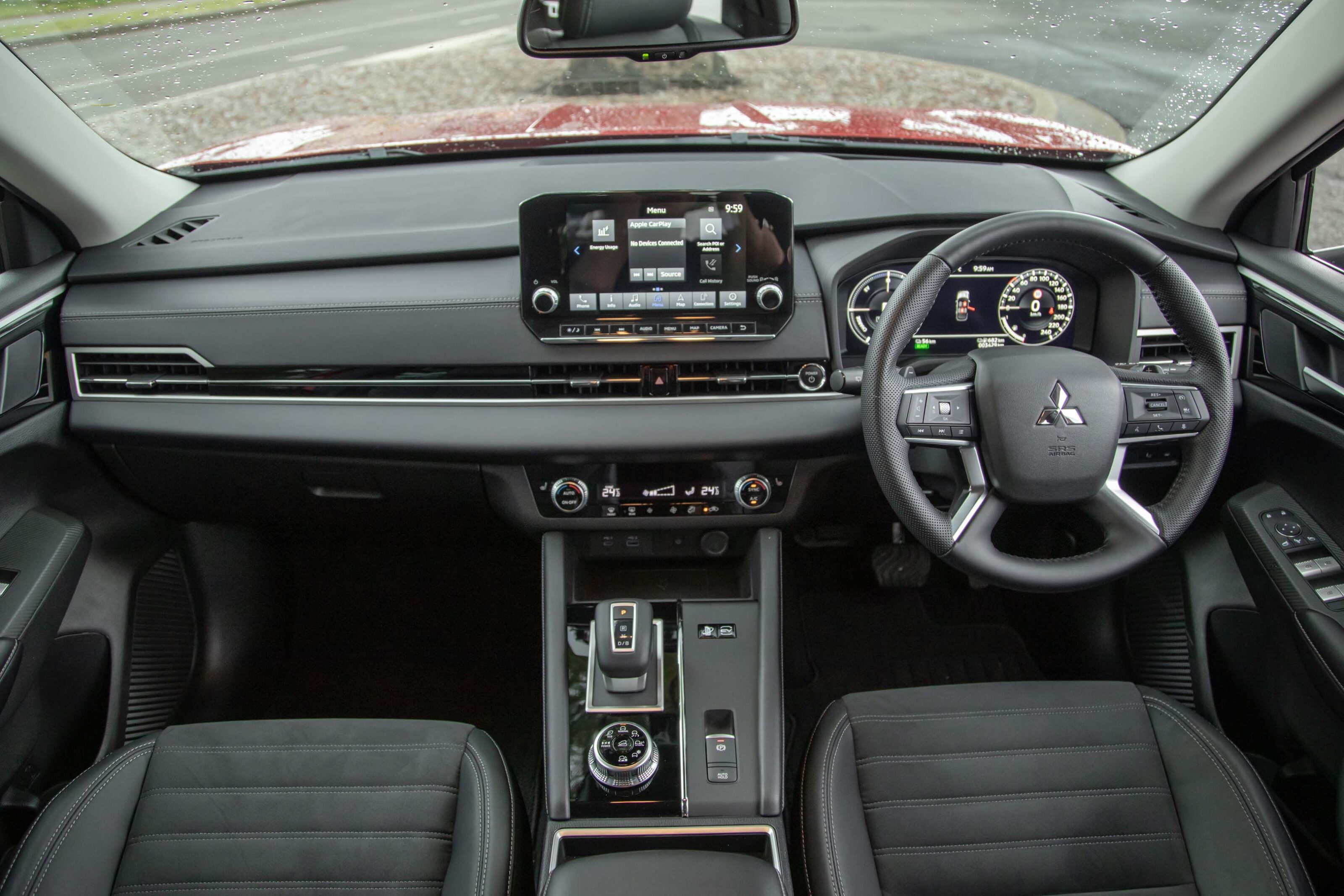
Despite years in the hybrid game (and overseas availability of a PHEV), Toyota won’t sell you a plug-in RAV4 for a variety of complicated reasons that I think boils down to the local operation not believing anyone will buy it over the hybrid, possibly reinforced by the local market largely ignoring the aforementioned Escape.
If you’ve got a bit more to spend, you can stretch another twenty grand or so to the Peugeot 3008 PHEV with its extremely cool interior and hot hatch looks and performance.
Mazda has just leapt over the ropes with the CX-60, which, like the Peugeot, is a lot more expensive than the Outlander but very stylish inside and out – and, again, fast.
Interior comfort, space and storage
The new Outlander’s cabin is an interesting proposition when compared to the old car.
That old beast was badly hamstrung by sharing its underguts with every other Mitsubishi SUV (except the Triton-based Pajero Sport), rendering it too narrow for three across the rear.
Now, this new machine is far better proportioned as a five-seater, with bigger, more comfortable rear seats. They work far better in the lower-spec models that don’t have a sunroof because you sit high in them. Headroom goes from marginal in the Exceed to rather good in the Aspire.
Legroom is also fine for up folks up to 180cm but you’re out of luck for USB ports. You do get bottle holders in the doors and a 240-volt power plug, though.
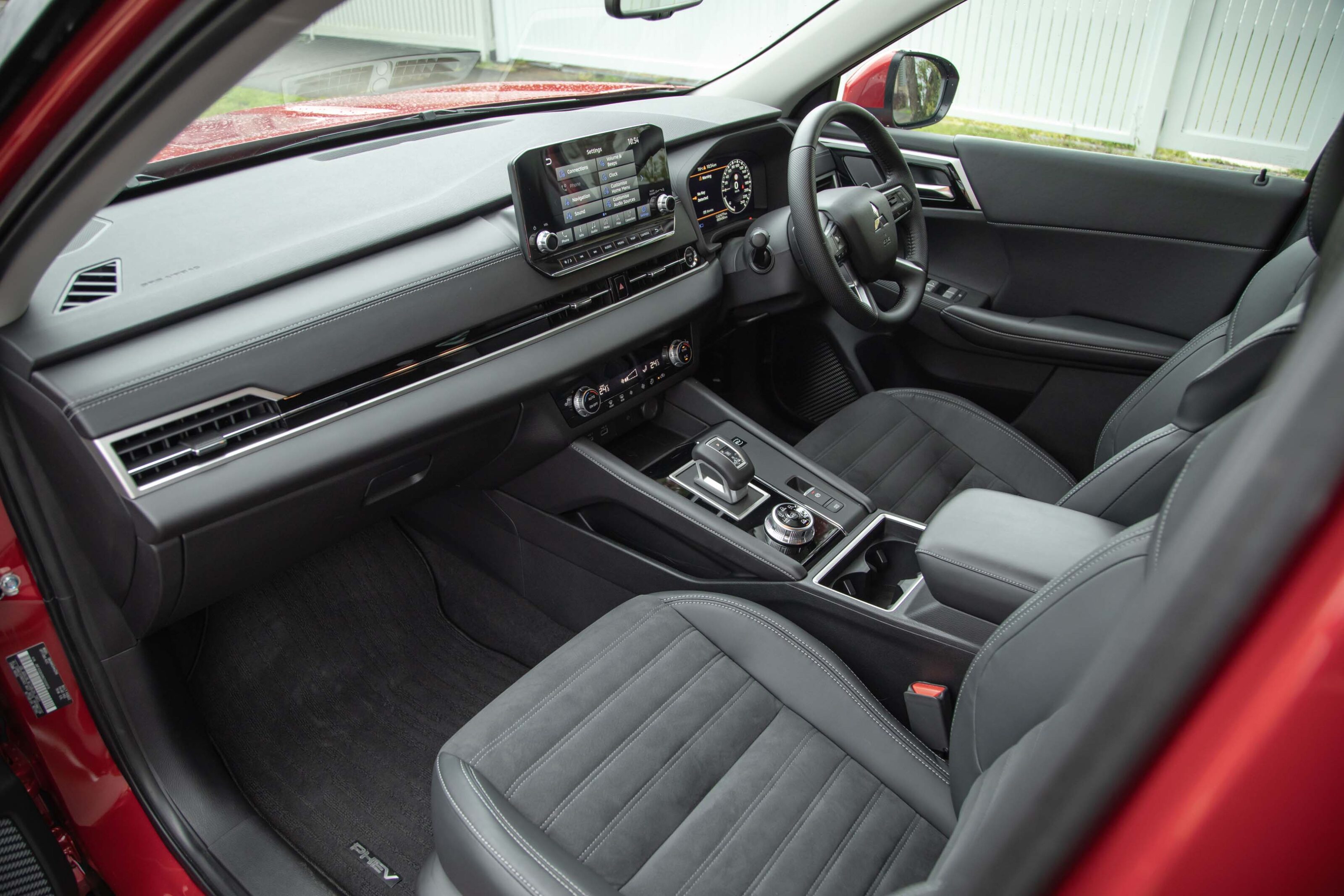
The cup holders aren’t in an armrest, but in the 20 part of the 40:20:40 split fold backrest, so the whole thing has to come down to get to the beverage receptacles. Better than nothing, I guess, but tricky if you have a boot full of, I dunno, balls for a ball pit. Or a dog.
Up front is a pair of very comfortable seats and a largely attractive dash. Mitsubishi can’t help itself with the physical knobs on the entertainment system which are shiny cheap-looking plastichrome, but a rare mark on an otherwise well-judged interior. You get USB-A ports, wireless phone charging and plenty of storage space under your elbow and in the doors, along with a pair of cup holders.
Boot space
You get a respectable 485 litres of space in the boot, which isn’t loads for this segment, but the battery has to go somewhere.
It eats the spare tyre, too, but there is at least some dedicated space for charging cables under the floor.
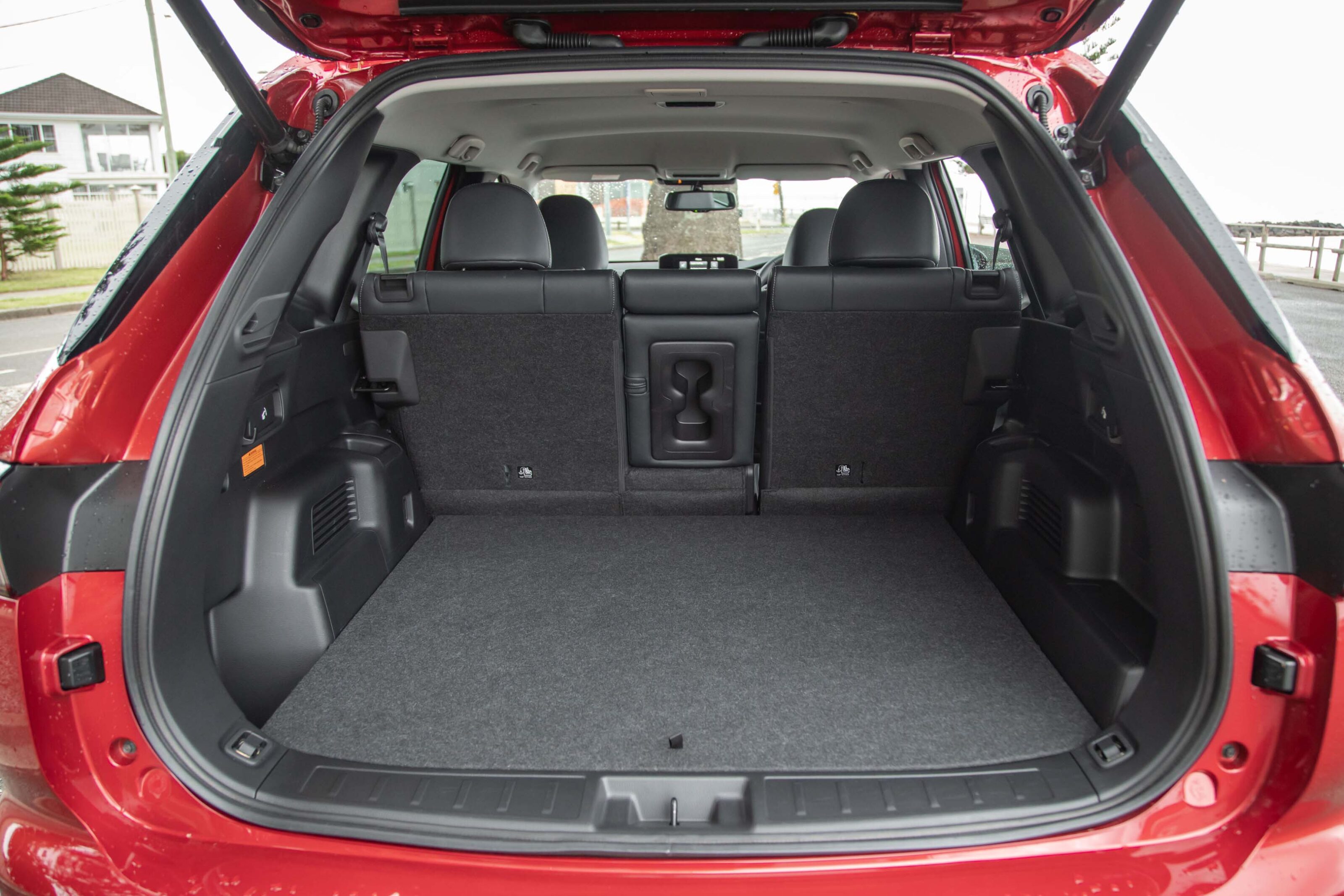
What is it like to drive?
The second-generation Outlander PHEV drivetrain looks pretty similar on paper but with the uprated electrified motors and battery plus Mitsubishi’s 2.4-litre petrol four along for the ride, things are bound to be better.
Which is just as well, because it’s a lot more expensive.
My week with the Aspire was marred by my wife having a scorching case of COVID, which meant I wasn’t able to go with the disciplined approach.
Instead, the PHEV ended up being used as an errand mobile, as many do. In a fairly stressful week caring for a stubborn patient and keeping the house stocked with food she could eat and food I could just chuck in the microwave, the Outlander was a place of serenity.
The PHEV drivetrain is really very smooth indeed. As I keep saying, the new-generation Outlander is a vast improvement over the old, but the petrol-only version still labours with not enough power and a CVT that does its best, but it feels slow.
The basics
| Body | 5-door, 5-seat medium SUV |
| Drive | all-wheel |
| Engine | 2.4-litre four-cylinder (ICE) |
| Battery capacity | 20kWh |
| Combined power & torque | 185kW / 450Nm |
| AC charging | 9.5 hours (100%) / 6.5 hours (100%) with wallbox |
| DC Charging | 38 mins 0-80%, CHAdeMO |
| Energy consumption: | 21kWh/100km |
| Fuel consumption (official ADR figure) | 1.5L/100km |
| Fuel consumption (combined): | 7.6L/100km |
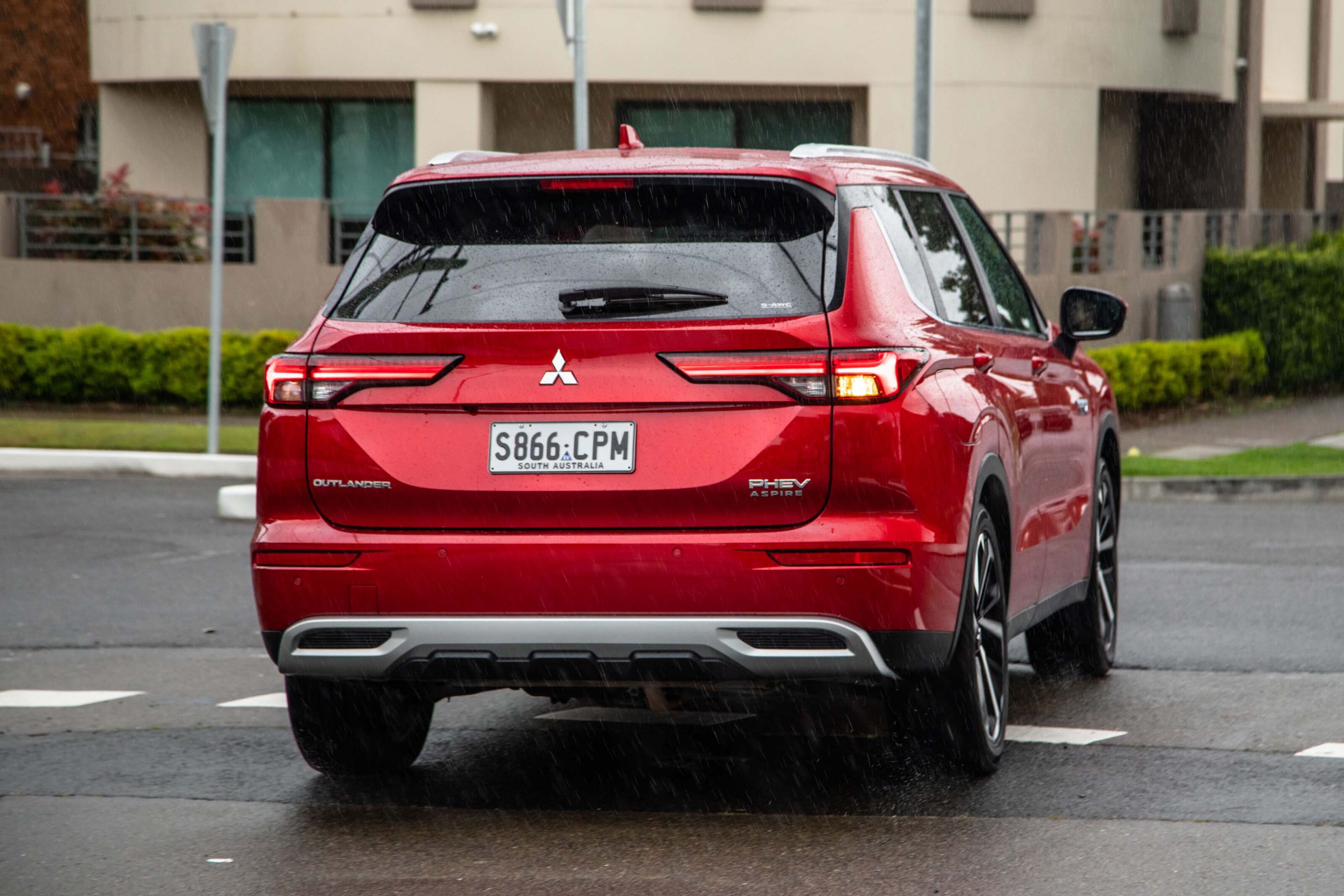
With EV step-off, even when the battery is flat, the Aspire’s easy torque wafted me off down the street.
How it goes about its battery usage is an interesting contrast to the Escape PHEV I ran for a few months. The Escape would view the battery as its primary form of propulsion (unless you told it otherwise) and run it down to “empty” before calling on the engine (unless your right foot demanded more, of course).
The Outlander seemed more content with the idea of running as an EV-biased hybrid but it actually took a while before I noticed the seamless intervention of the combustion engine. It can run in several different combinations of internal combustion and electric.
At urban speeds (up to 70km/h), electricity is the primary form of propulsion. The engine can act as a generator to keep the battery topped up so you’ll hear it chime in every now and again. Flat to the floor, the single-gear transaxle will directly engage with the front wheels alongside the electric motors as long as engine speed matches wheel speed to provide a bit of extra oomph. It’s complicated, as you can see.
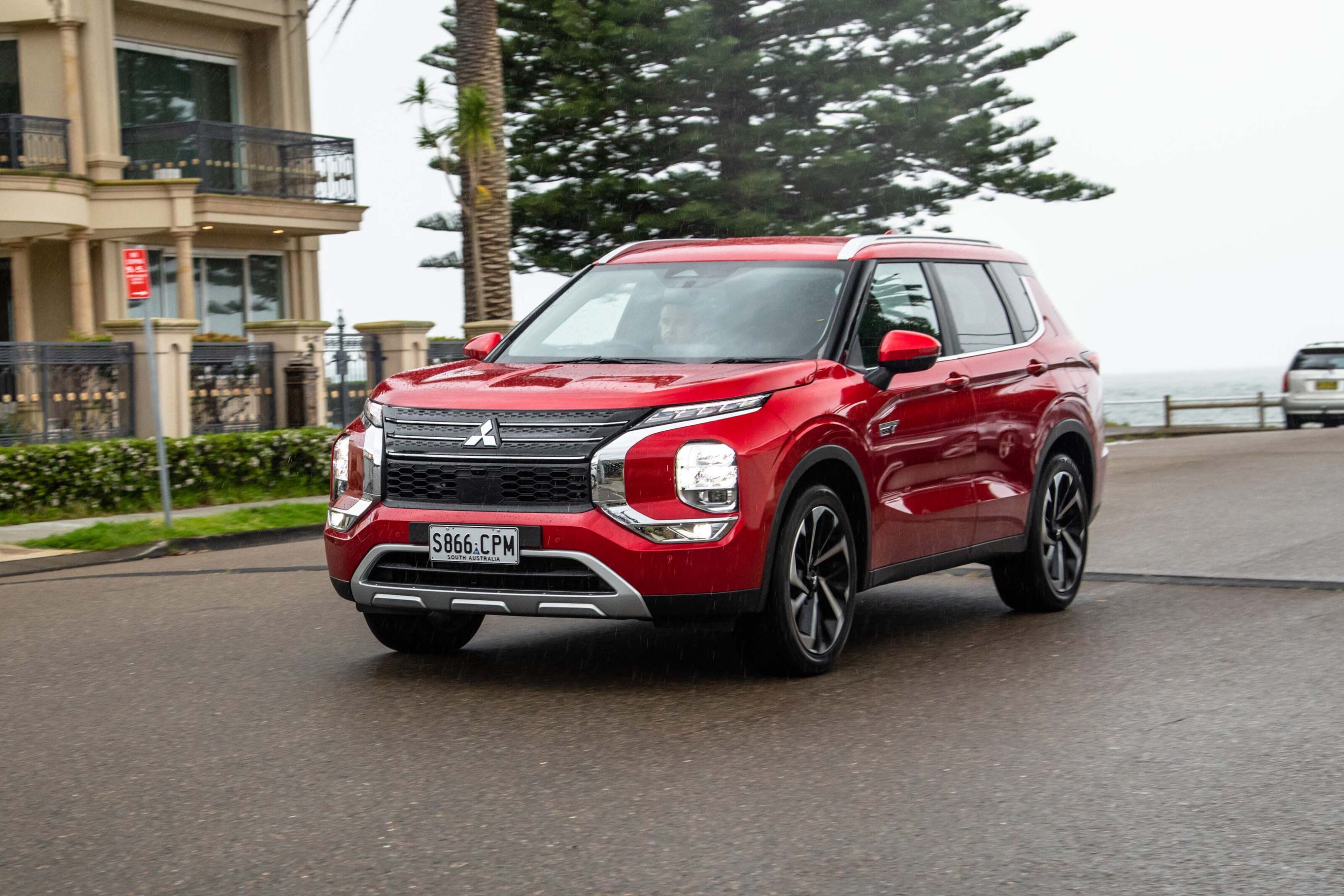
Put it in Power mode and you’ll hit 100km/h in 8.2 seconds, which is two seconds up on the 2.5-litre ICE-only cars.
Stay out of Power mode and you’ll get a slower figure, but you’ll hardly notice that around town.
Once you’re over 70km/h, the parts of the system work together but the petrol engine spends more time in action as electricity runs out more quickly as road speed rises.
When settled at the legal limit, the effect of having a single-speed transmission stymies performance. You don’t get that torque hit because the system defaults to electric-only propulsion, with the motor keeping the electrons flowing. It’s fine if you’re cruising, but you’ll need to be patient on single carriageways if you’re stuck behind a truck because it takes quite a while to build overtaking speeds.
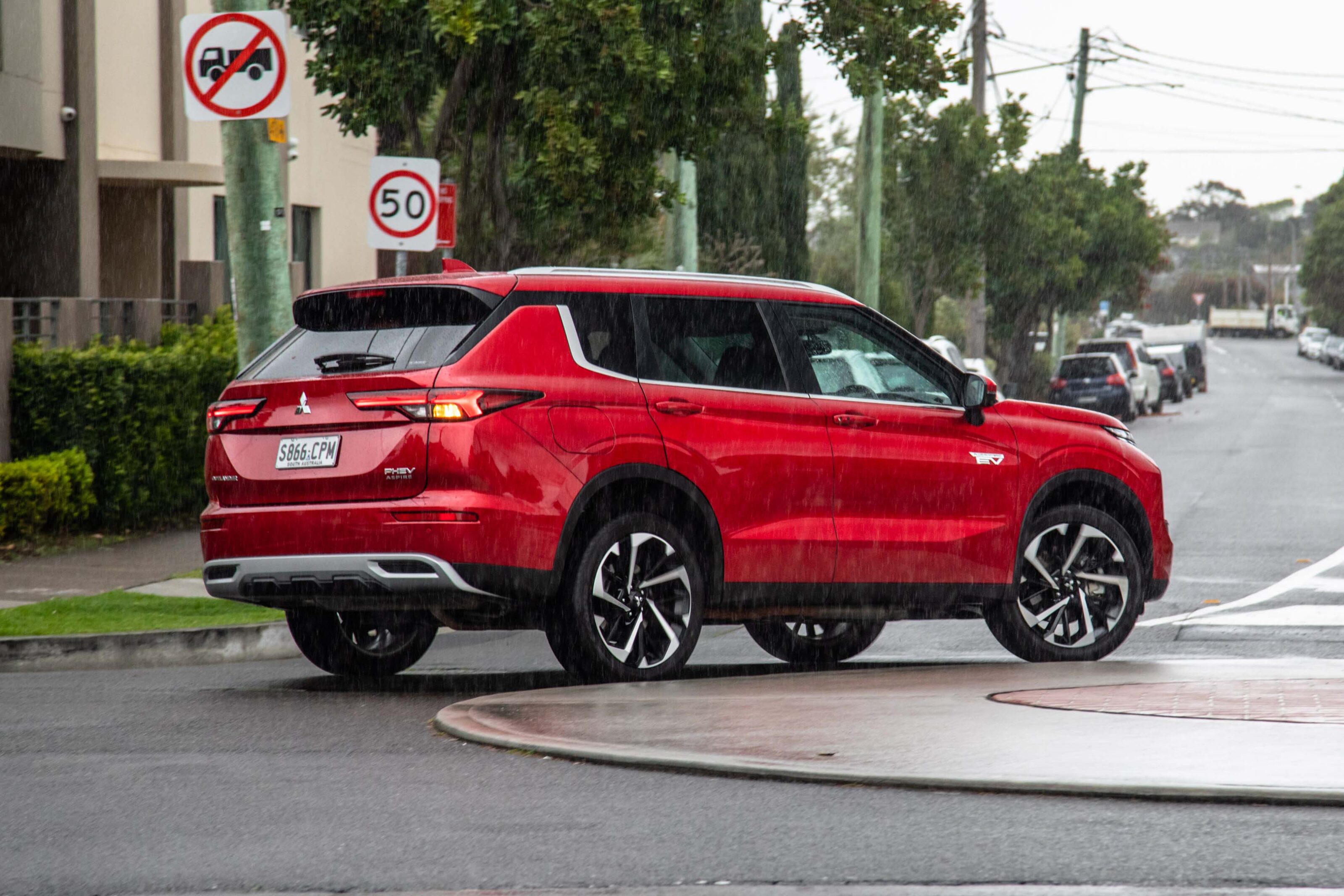
Like many electrified cars, you can choose the level of regenerative braking and in turn, that affects the driving experience and energy consumption.
Even at its highest level, which you select with the steering wheel mounted paddles, it’s not quite enough for one-pedal driving unless you’re a really early braker in traffic. Having said that, it’s hardly a chore to modulate the brake pedal.
As with the non-PHEV Outlanders, this new car is much better to drive. The steering is good, the rear suspension is put to far better use and with the rally-bred (cough) ‘super all-wheel control’ using torque vectoring to sharpen up steering response, you can turn into corners quite quickly.
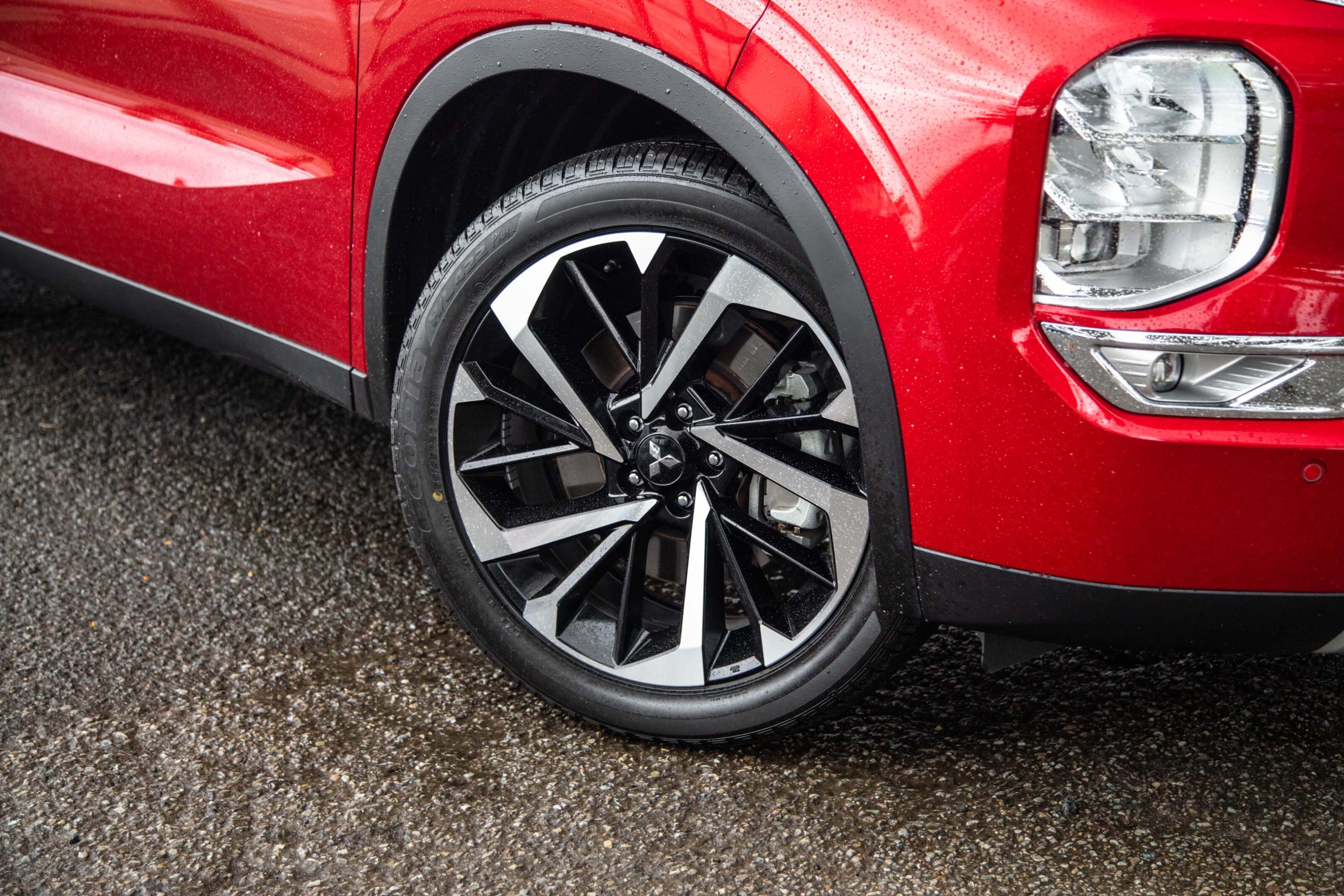
Rolling on 20-inch alloys is always going to have an impact; you will feel that as things get a bit busy on rougher urban surfaces. It stays quiet, though the suspension never settles and even when it’s smooth, there is a firm feeling. I don’t mind firm, others may not be so enthusiastic about it.
I did also notice the weight of the PHEV system could result in some awkward weight shifting in corners, but nothing to worry about.
Also worth noting is that the PHEV can tow 1600kg, just like its petrol-only brothers.
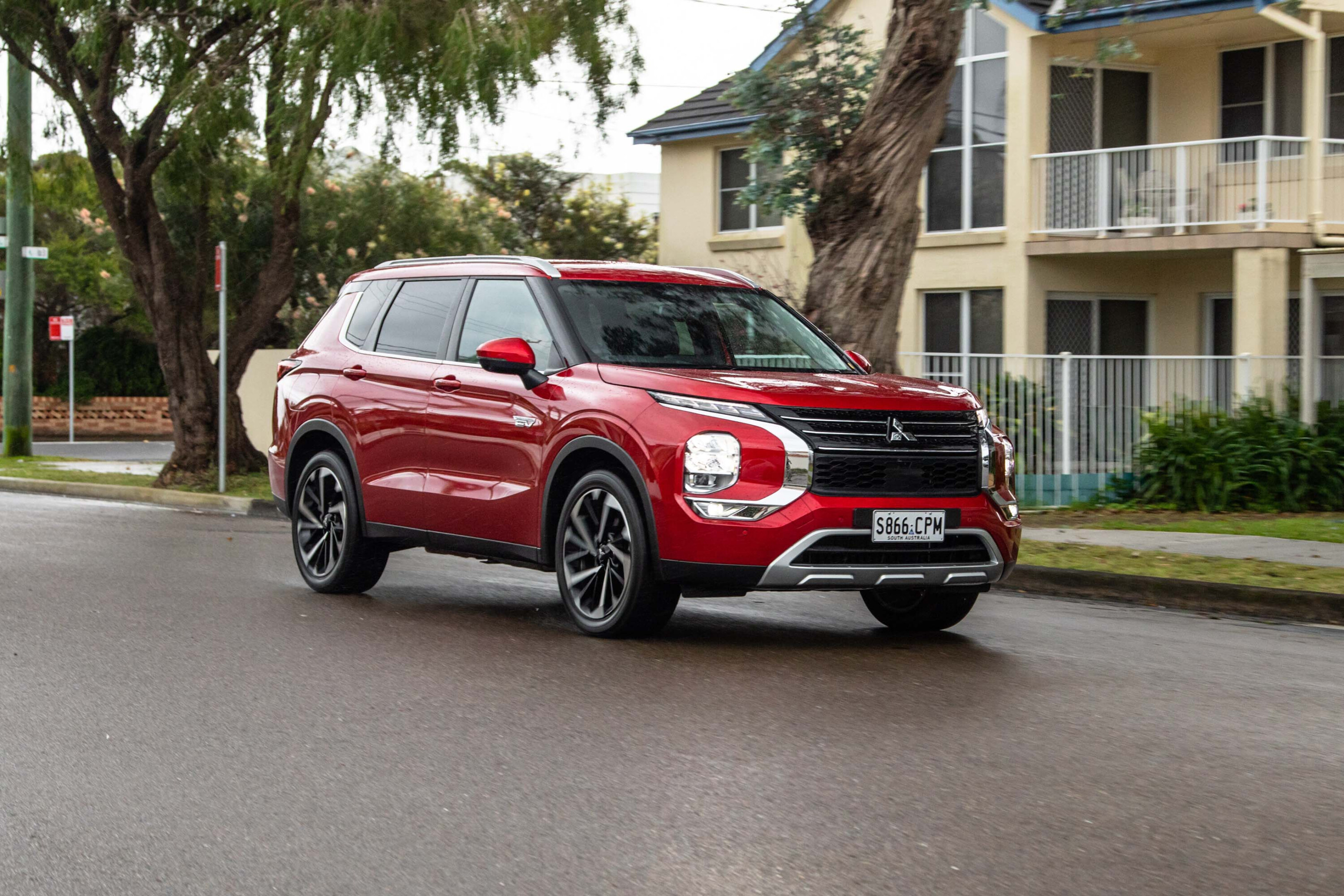
How is it on fuel?
Well, this isn’t a simple question.
Mitsubishi’s ADR testing yielded a scarcely believable 1.5L/100km, which you could almost get in the old car if you didn’t mind hypermiling on the hard shoulder with your hazards on. In normal driving over a whole tank, you wouldn’t see that, but it was commendably frugal.
With an EV-only range of 84km, you still won’t see 1.5L/100km over a whole tank if you point your car out the driveway on a 1000km road trip. With discipline – and Mitsubishi says close to 100 per cent of Outlander PHEV owners have it – your daily commute will be covered by the battery if you fall into the average 30km round-trip to work.
Mitsubishi sensibly offers a more realistic figure of 7.6L/100km as a more accurate figure where the battery has run down and you empty the tank without recharging.
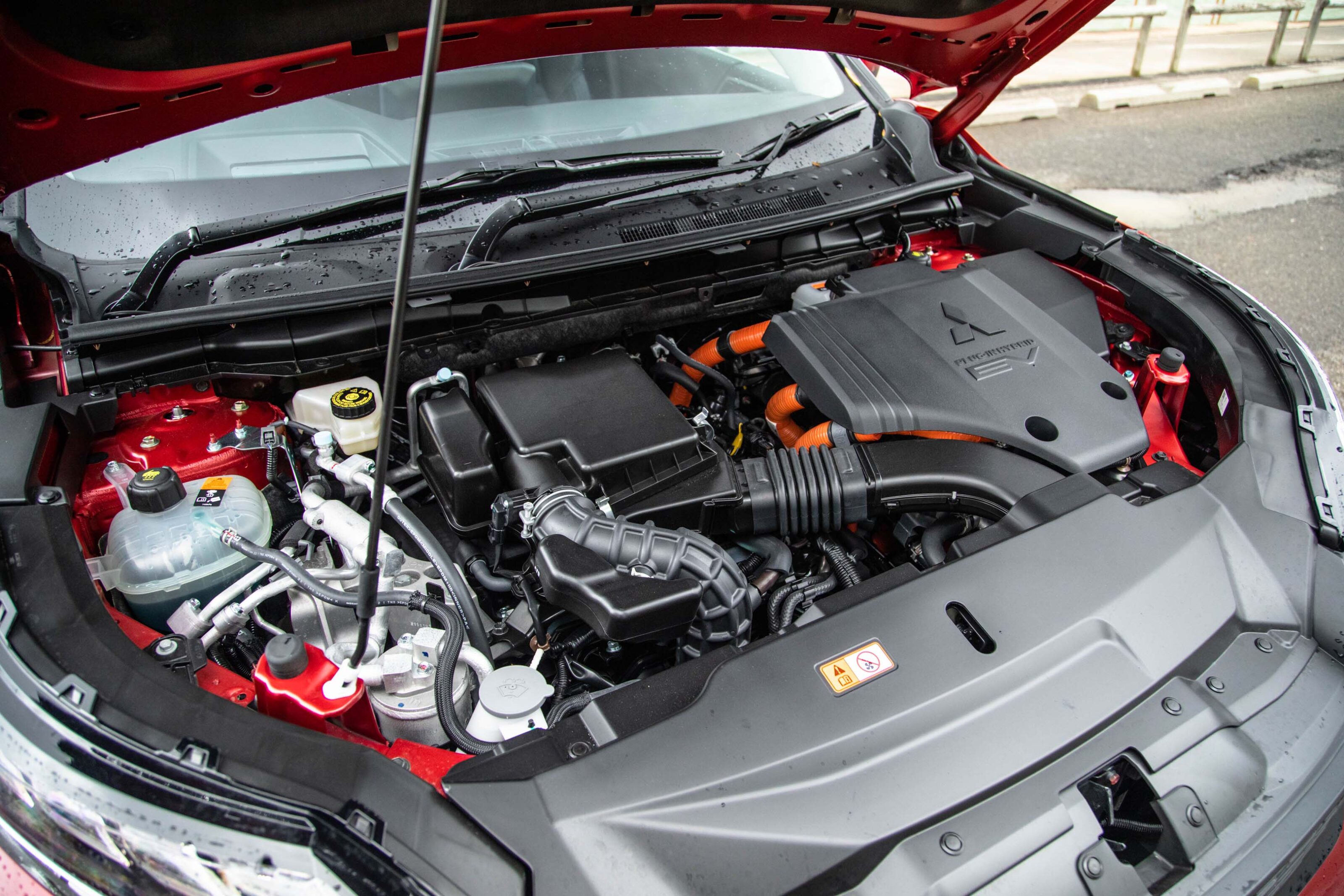
So after all of that, I got 5.0L/100km – as I was curious to see how it went once the battery “runs out” in the city. As with many PHEVs, once the dash shows empty, there’s still some charge in the battery – in this case 20 per cent – for the car to act as a regular hybrid and keep saving fuel.
For a 2.2-tonne car, that’s a good figure. Drive carefully, charge often and you’ll further reduce consumption.
Battery consumption is rated at 21kWh/100km, which isn’t exactly industry-leading but this SUV is hardly slippery through the air. My average was 27.7kWh/100km, but I wasn’t hypermiling.
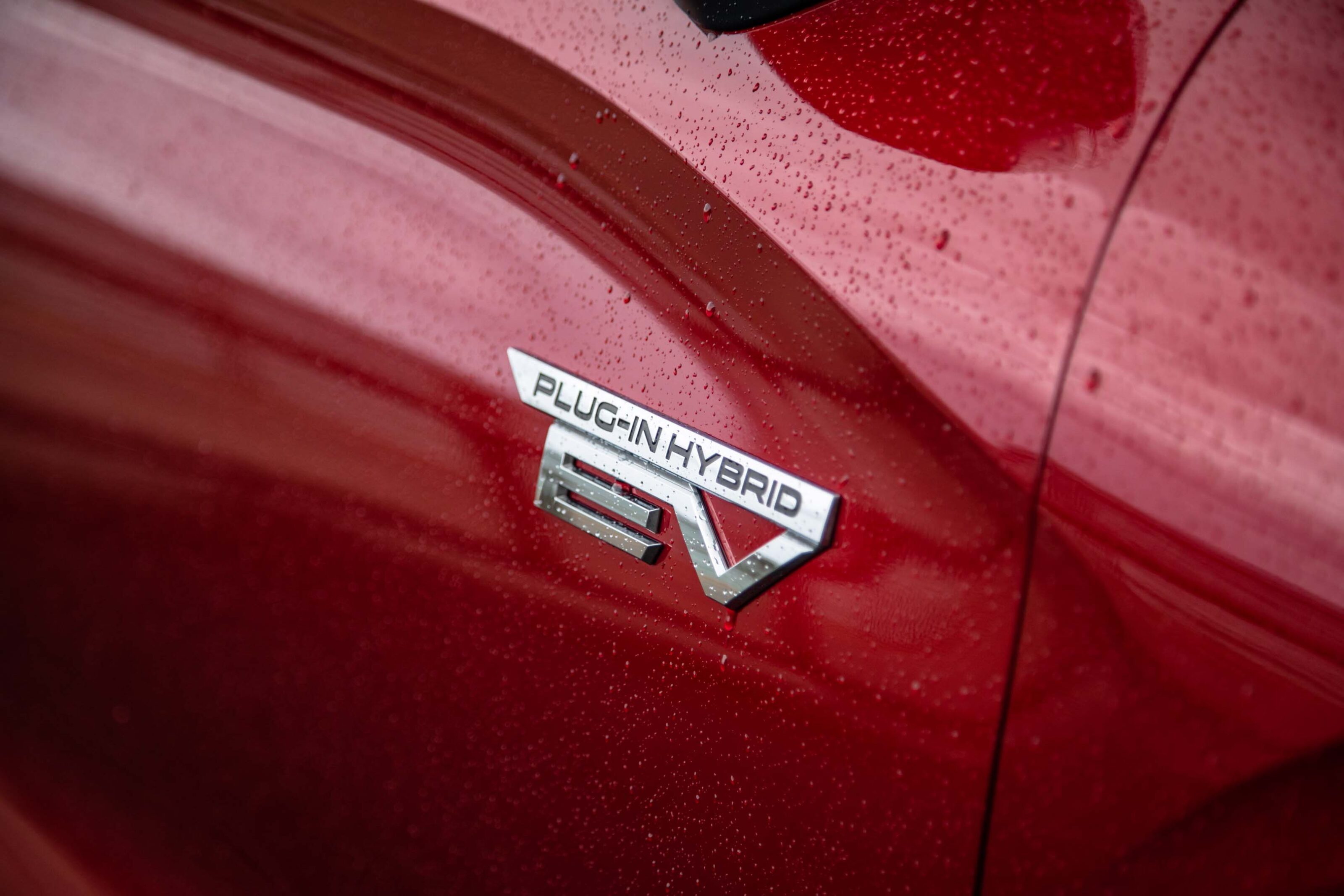
Battery and charging
Mitsubishi’s second PHEV Outlander features some very useful upgrades to the electrified propulsion bits.
The battery is much bigger, now rated at 20kWh, up from the old car’s 13.5kWh and delivering a claimed EV range of 84km, up from 50km.
Two electric motors provide drive to the front and rear axles, with 85kW up front and 100kW at the rear. Combined with the petrol engine, total power is 185kW and 450Nm to shift 2.2 tonnes of Outlander.
Charging is via either the usual 240-volt AC, which will give a full charge in nine and a half hours. A wallbox brings that down to around 6.5 hours. If you can find a CHAdeMO plug (Ampol’s chargers have those), you can fast charge from empty to 80 per cent in 38 mins.
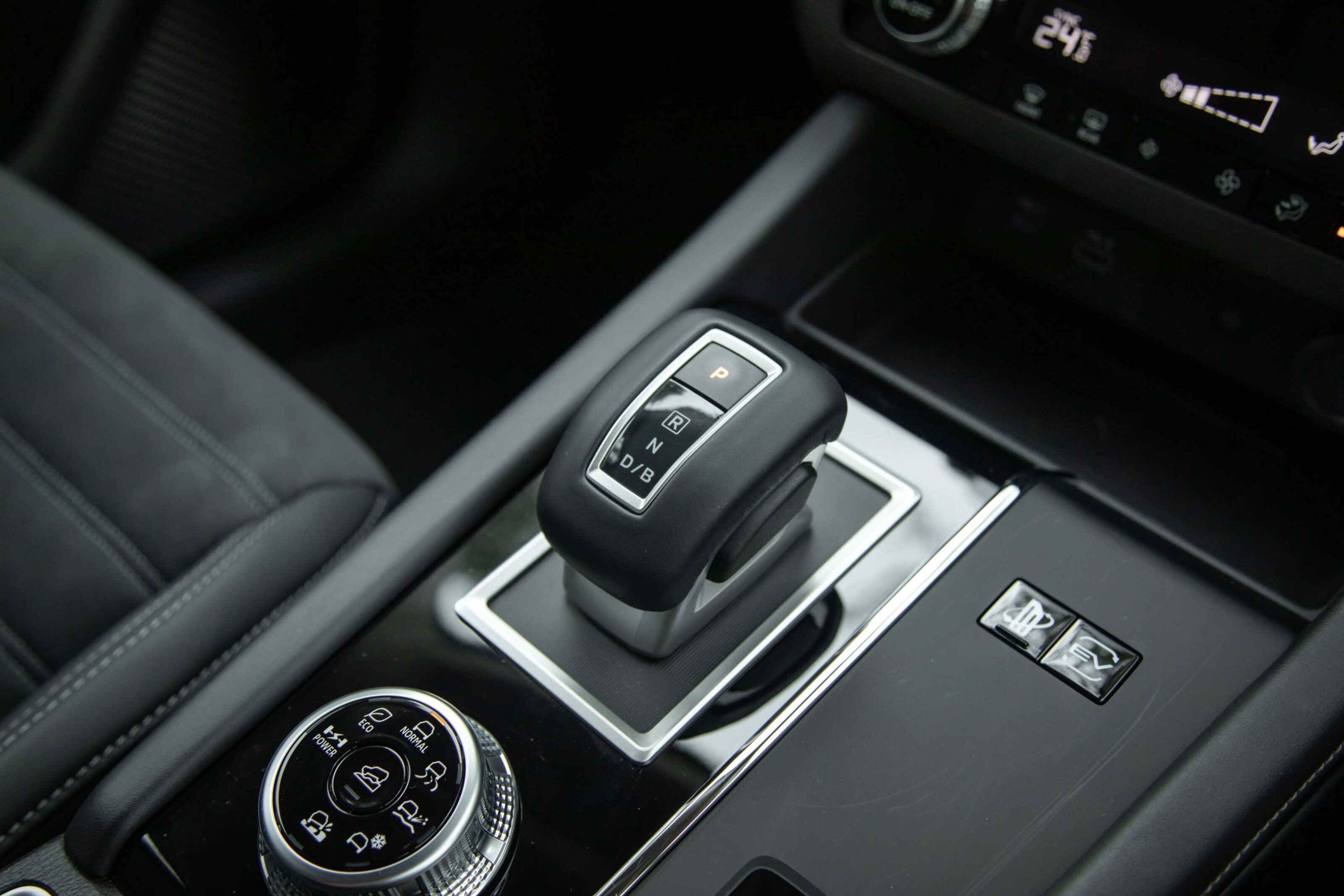
Like its Alliance stablemate Nissan, Mitsubishi is sticking with the oddball CHAdeMO charging standard to provide vehicle-to-X (load or grid) capability when that becomes available.
This means you can fit a plug while you’re out and about to run appliances or plug it into your home and integrate it into your power setup.
For context on how useful that might be, a fully-charged 20kWh battery can supply a day’s worth of electricity to a modest house in the event of a blackout (or you’re a tricksy load-shifter). We have a Tesla Powerwall in our home rated to 13.5kWh and that certainly does the job for us in concert with the rooftop solar.
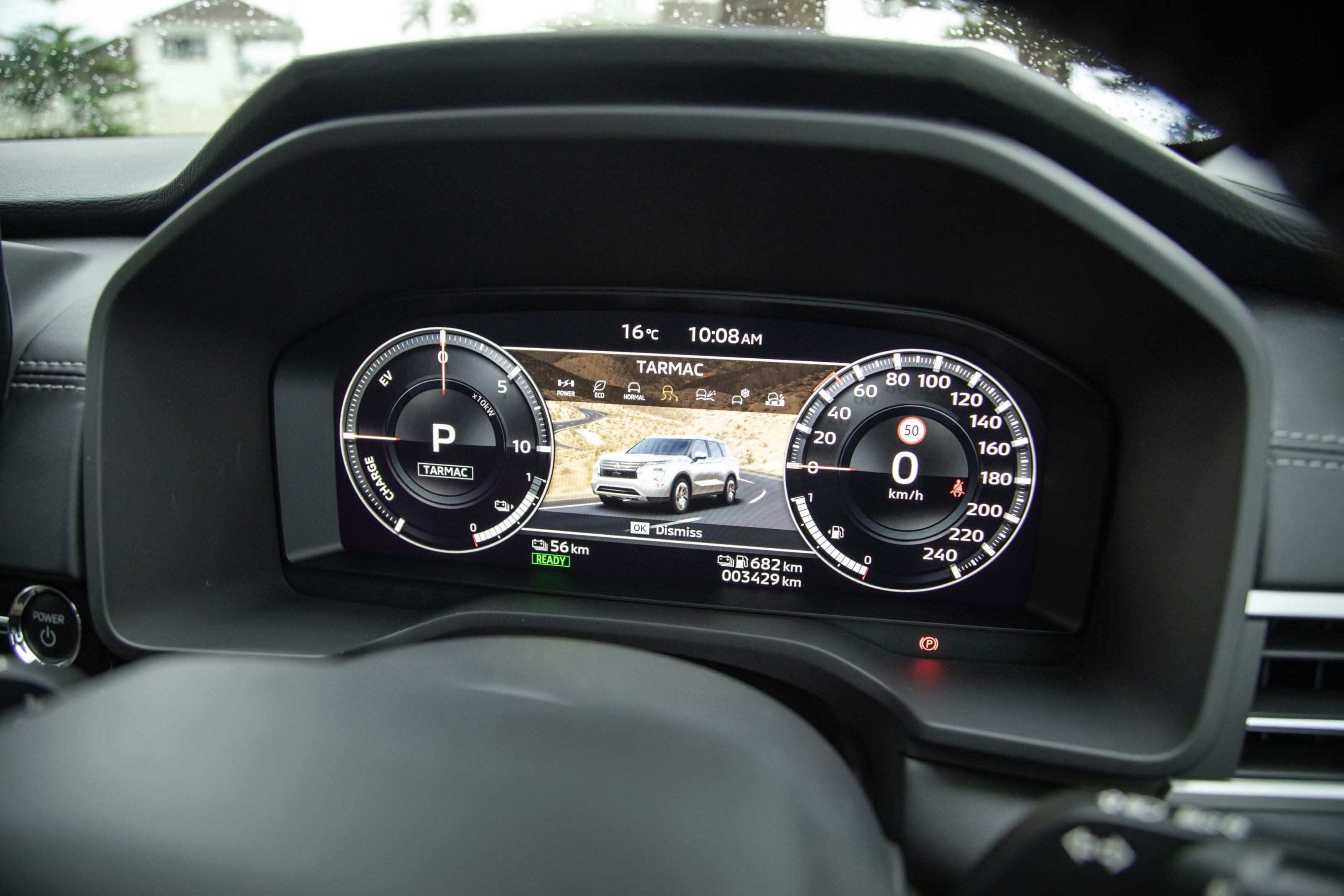
How safe is it?
The Outlander scored five ANCAP stars in January 2022.
It received scores of 83 percent for adult occupant protection, 92 percent for child occupant protection, 81 percent for vulnerable road user protection, and 83 percent for safety assist.
All variants feature identical safety gear, though the Aspire adds surround-view cameras, while the flagship Exceed variants have a semi-autonomous ‘Mi-Pilot’ system with traffic jam assist for highway steering.
| 2023 Mitsubishi Outlander active safety features | |
|---|---|
| AEB with pedestrian, cyclist and reversing detection | Eight airbags |
| Emergency lane assist | Front and rear parking sensors |
| Lane departure warning and prevention | Reversing camera |
| Blind spot warning | ABS |
| Traffic sign recognition | Stability and traction controls |
| Reverse cross-traffic alert | Forward collision warning |
| Automatic high beam | Reversing camera |
| Driver fatigue monitor | Front, side and rear cameras |
| Adaptive cruise control | Trailer sway control |
I personally think rear AEB and reverse cross-traffic alert are very important and should be on every single car on sale today because not backing into things is not just great for convenience, but it could save a life, so it’s great that Mitsubishi has now added this safety technology to the base ES variant.
The airbag count includes a front centre airbag, which deploys in a side impact between the front passengers to try and prevent head clashes.
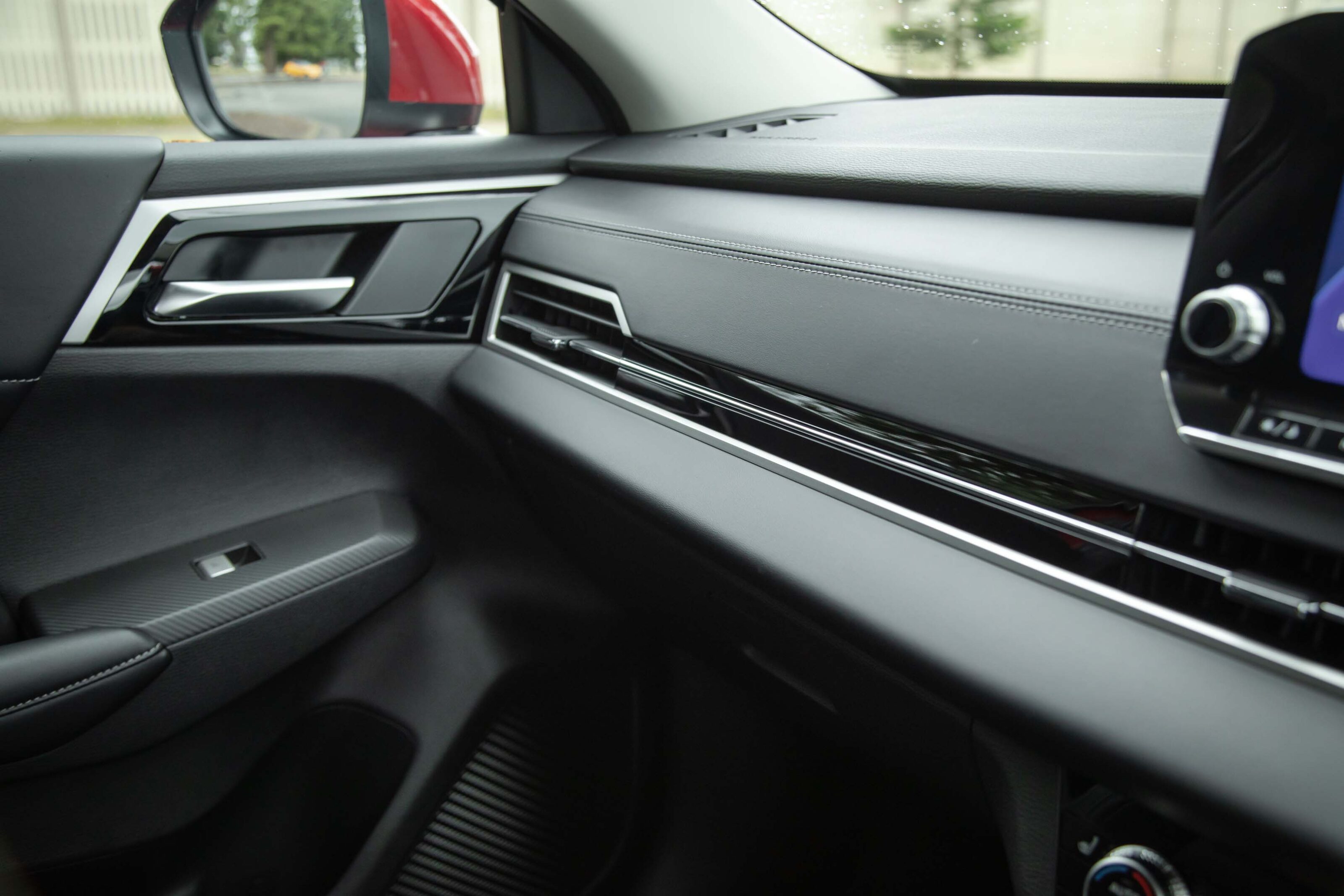
Warranty and running costs
The Outlander enjoys Mitsubishi’s headline-grabbing 10-year/150,000km warranty.
For most buyers that is going to be just fine thanks very much given the vast majority will spend their lives in the city. If you do break the limit, your warranty reverts to five years/unlimited, which is competitive.
Getting the full decade of cover also depends on you returning to the dealer every 12 months/15,000km for each and every service (skipping the dealer also reverts you to the five-year warranty).
The battery pack’s warranty is shorter than the vehicle warranty, with eight years/160,000km. If the battery degrades to less than 66 (!) per cent of its original capacity during the eight years, Mitsubishi will replace it.
Capped-price servicing lasts for the ten-year warranty duration, with most services landing at $349 and then some hefty ones arrive at either $749 or $849 in the regime’s later years. The first five services come in at $1845, which is not bad.
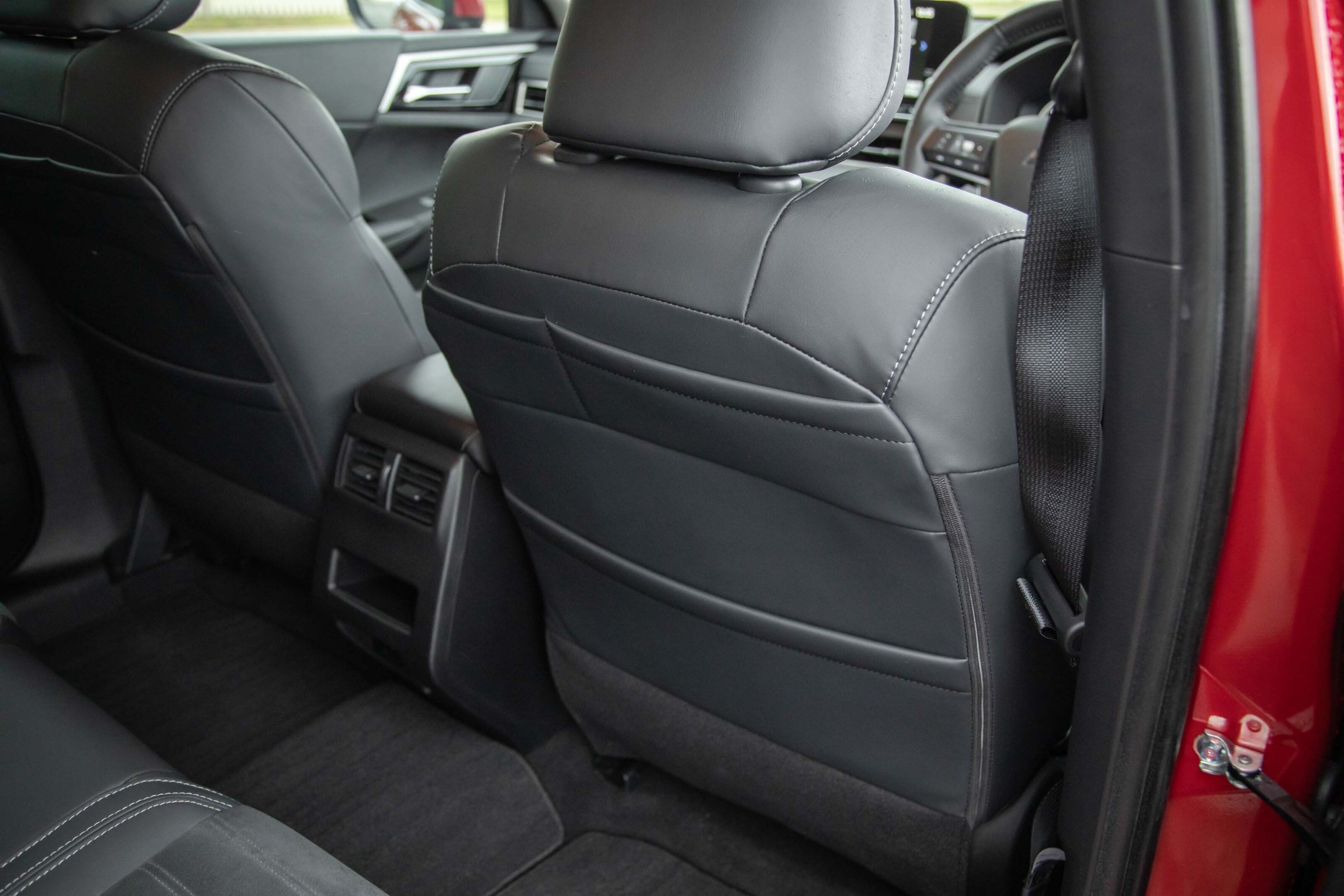
VERDICT
If you can be a disciplined driver, that hefty premium might just be worth it.
Does the PHEV establish itself as the best Outlander? Absolutely. The gap isn’t as wide as it was, partly because the overall experience of this car is so much better than before. Hugely better interior, driving dynamics and looks all conspire to close the gap.
There’s still daylight, though, and that’s because the 2.5-litre in the ICE cars is a bit underdone and plugged into a CVT that isn’t really at home in such a big car (though, again, better than before).
What you really get here is an everyday EV with a range-extending petrol engine. You could conceivably drive all year on electricity until you load up the kids and head for the hills.
That’s pretty good going. But, as ever, the value is only unlocked by discipline. If Mitsubishi’s own research is anything to go by, past owners are hugely disciplined and get the most out of their PHEVs. If you can do it, that hefty premium might just be worth it.
Specifications
| 2024 Mitsubishi Outlander Aspire PHEV | |
|---|---|
| Body | 5-door, 5-seat medium SUV |
| Drive | all-wheel |
| Engine | 2.4-litre four-cylinder (ICE) |
| Transmission | single-speed reduction gear |
| Power | 98kW @ 5000rpm |
| Torque | 195Nm @ 43000rpm |
| Compression ratio | 12.01 |
| Bore/stroke | 88.0 x 97.0 |
| Battery capacity | 20kWh |
| EV power | 85kW front / 100kW rear |
| EV torque | not stated |
| Combined power | 185kW |
| Combined torque | 450Nm |
| AC charging | 9.5 hours (100%) / 6.5 hours (100%) with wallbox |
| DC Charging | 38 mins 0-80%, CHAdeMO |
| 0-100km/h | 8.2 sec (claimed) |
| Energy consumption | 21kWh/100km |
| Fuel consumption (official ADR figure) | 1.5L/100km |
| Fuel consumption (combined) | 7.6L/100km |
| Weight | 2144kg |
| Suspension | MacPherson strut front / multi-link rear |
| L/W/H | 4710/1862/1745 |
| Wheelbase | 2706mm |
| Tyres | 255/45 R20 |
| Wheels | 20-inch alloy, no spare |
| Brake | 350mm discs (f); 330mm discs (r) |
| Price | $63,790 + on-road costs |
Score breakdown
Things we like
- Smooth PHEV system
- Excellent interior feel and space
- 10-year warranty (with conditions)
Not so much
- Big pricing step from petrol models
- No spare wheel
- Some chintzy detailing
We recommend
-
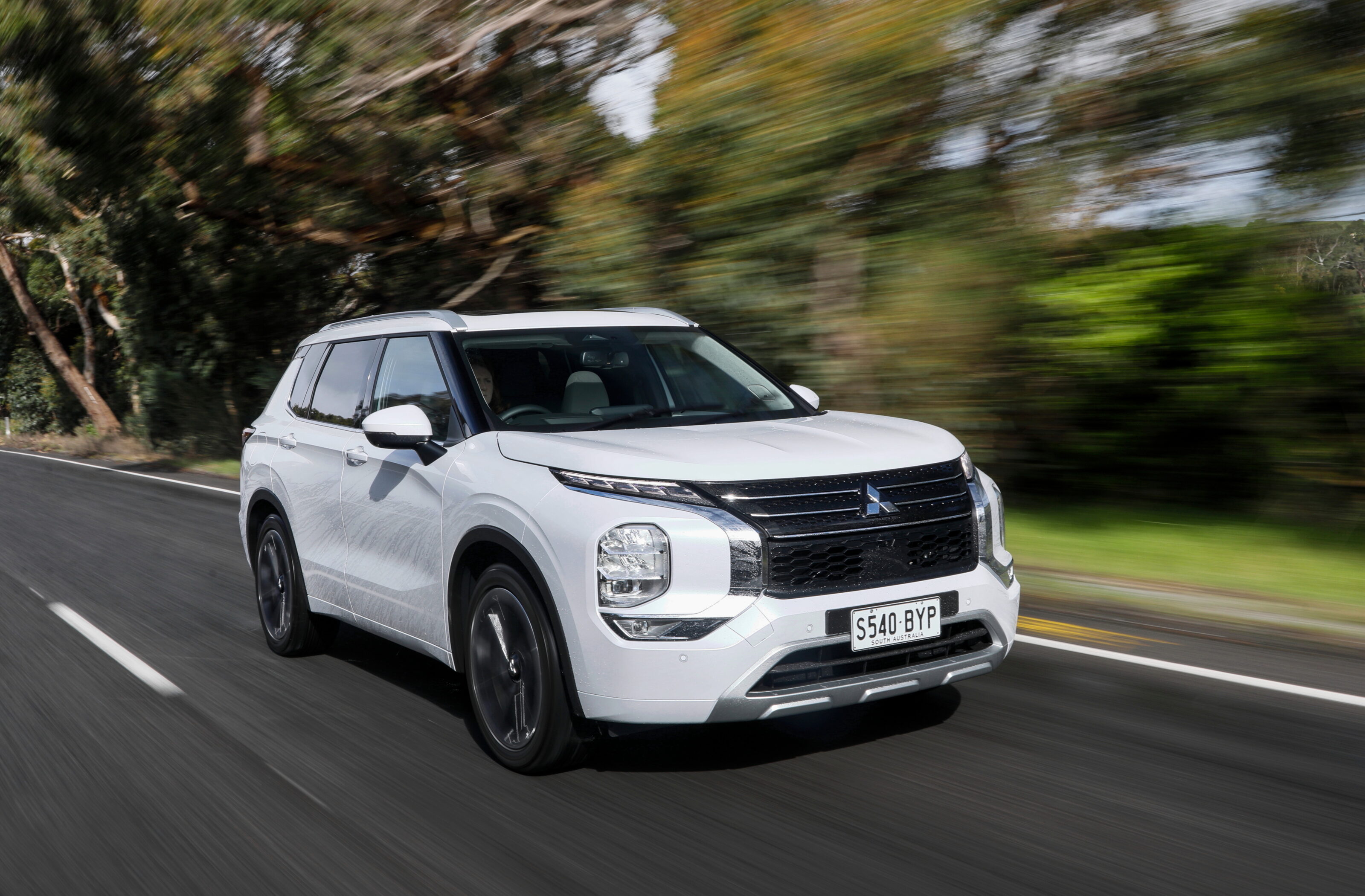 News
News2022 Mitsubishi Outlander full pricing and features revealed
Mitsubishi is finally replacing its long-serving Outlander with a new, bigger car and a sizeable uplift in features and safety – and price
-
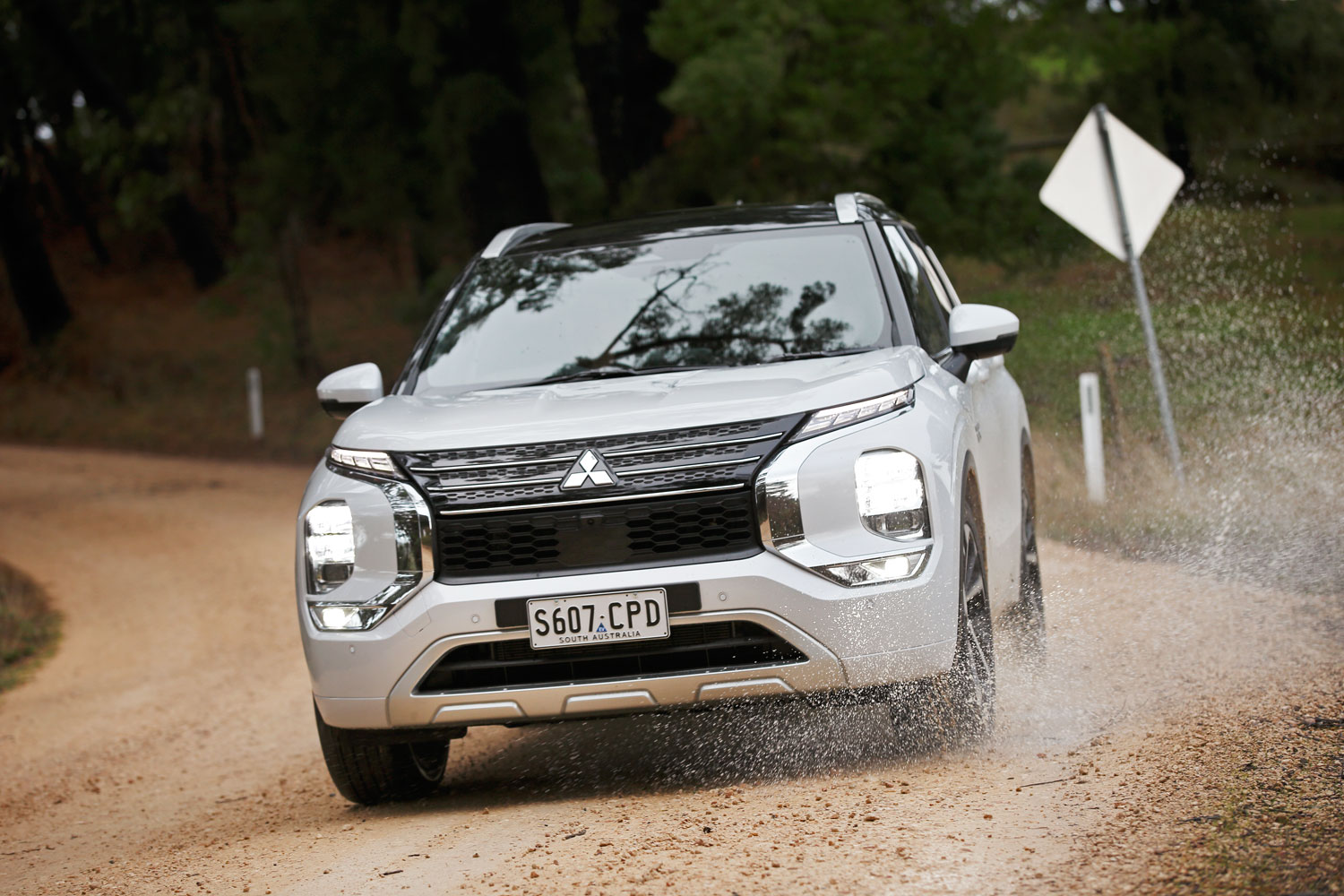 Reviews
Reviews2022 Mitsubishi Outlander PHEV review: Australian first drive
New version of Mitsubishi's plug-in hybrid pioneer amps up the range, performance and cost
-
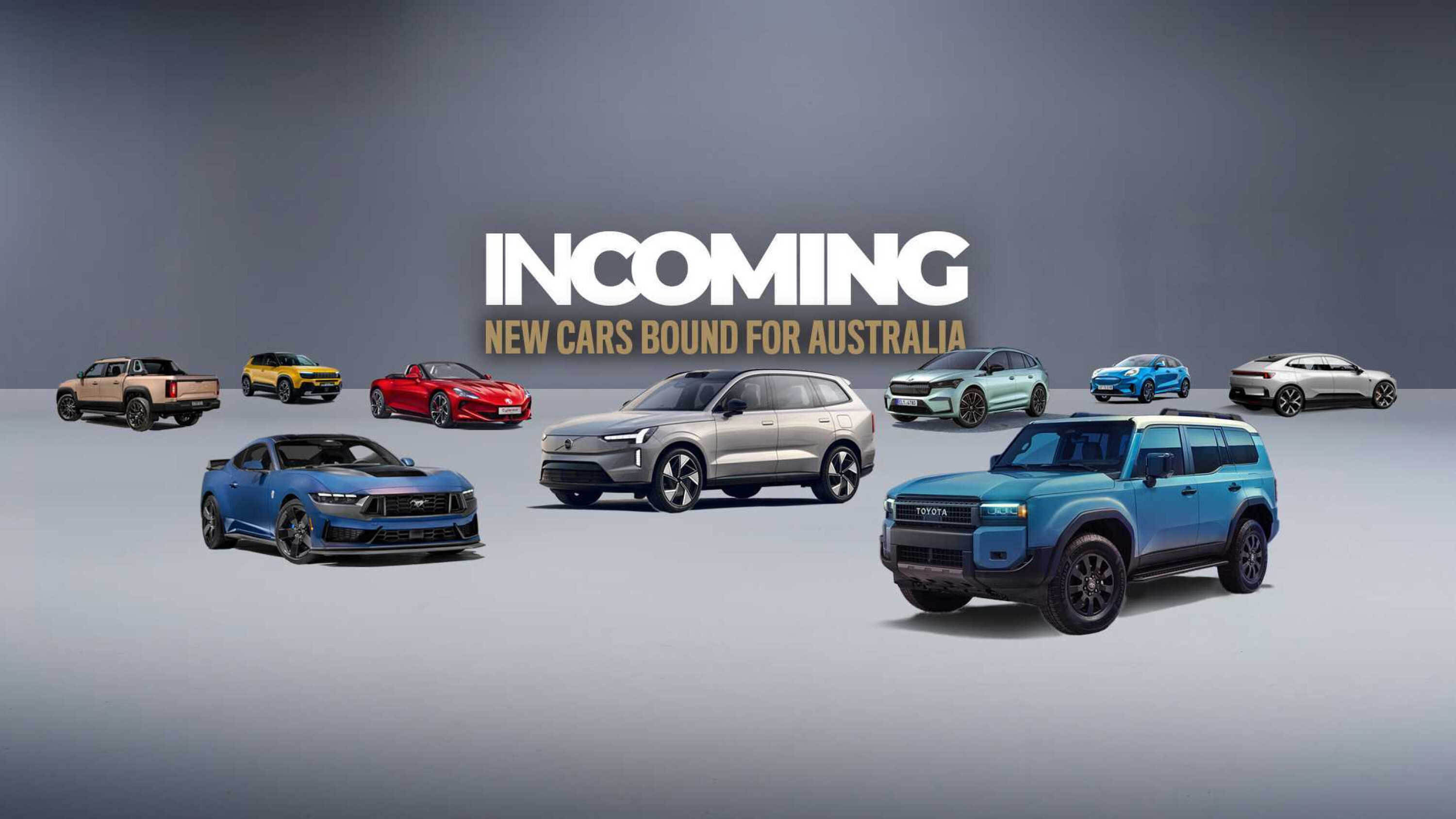 News
News2025 New Car Calendar: All the new cars coming to Australia
Take a look at our list of what is expected to launch in Australia in 2025 – plus those we might not see locally just yet


